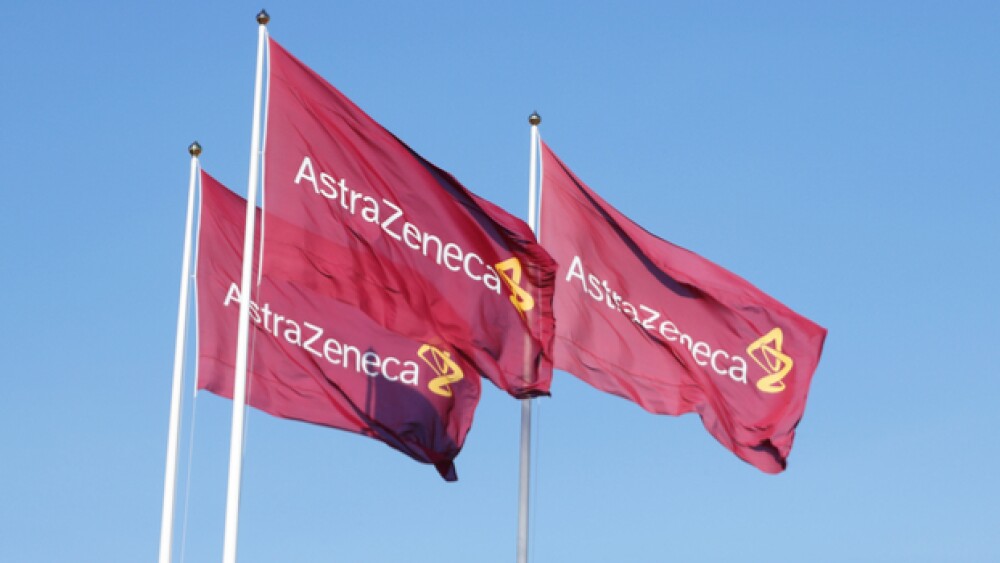AstraZeneca and its MedImmune division announced results from its Phase III EAGLE clinical trial. Imfinzi, in combination with tremelimumab, an anti-CTLA4 antibody, compared to standard-of-care (SoC) chemotherapy, failed to meet its primary endpoints in patients with recurrent or metastatic head and neck squamous cell carcinoma (HNSCC) whose disease progressed after platinum-based chemotherapy, regardless of the PD-L1 status of their cancer.
Roland Magnusson / Shutterstock.com
AstraZeneca and its MedImmune division announced results from its Phase III EAGLE clinical trial. Imfinzi, in combination with tremelimumab, an anti-CTLA4 antibody, compared to standard-of-care (SoC) chemotherapy, failed to meet its primary endpoints in patients with recurrent or metastatic head and neck squamous cell carcinoma (HNSCC) whose disease progressed after platinum-based chemotherapy, regardless of the PD-L1 status of their cancer.
The EAGLE trial is a randomized, open-label, multi-center, global, Phase III trial of Imfinzi (durvalumab) as a monotherapy or Imfinzi in combination with tremelimumab compared to standard-of-care chemotherapy in HNSCC. It was performed at 169 centers in 24 countries, including the U.S., Europe, South America, Japan, Korea, Taiwan, Israel and Australia.
The primary endpoint of the trial was overall survival (OS). Neither the Imfinzi monotherapy or the combination met the primary endpoint of improving OS compared to standard chemotherapy.
Globally, about 880,000 people were diagnosed with head and neck cancer this year. About two-thirds are diagnosed with Stage III or IV, the most advanced stages. The other third are diagnosed in Stages I or II, the earlier stages. More than 90 percent of these types of cancers start in the squamous cells in the mouth, nose and throat.
Imfinzi is a human monoclonal antibody that binds to PD-L1, blocking the interaction of PD-L1 with PD-1 and CD80. This results in preventing the tumor from hiding from the immune system.
Imfinzi, despite failing this trial, is approved for unresectable, Stage III non-small cell lung cancer (NSCLC) in more than 40 countries, including the U.S., European Union and Japan. It is also approved for previously-treated advanced bladder cancer patients in the U.S., Canada, Brazil, Israel, India, United Arab Emirates, Australia and Hong Kong.
AstraZeneca will continue to evaluate Imfinzi alone and in combination with tremelimumab in other cancers, including NSCLC, small-cell lung cancer (SCLC), bladder cancer, head and neck cancer and other solid tumors.
“The prognosis for recurrent or metastatic head and neck squamous cell cancer is very poor and new treatments for this group of cancers are urgently needed,” stated Sean Bohen, AstraZeneca’s executive vice president, Global Medicines Development and chief medical officer. “While these results are disappointing, we remain committed to evaluating the potential of Imfinzi and other innovative medicines for patients with head and neck cancer.”
The company expects to release data from the Phase III KESTREL clinical trial in the first half of 2019. This study evaluates Imfinzi and tremelimumab in patients who have not received previous chemotherapy for recurrent or metastatic head and neck squamous cell carcinoma.
It wasn’t that long ago, in late September, when AstraZeneca released data on OS in its Phase III PACIFIC trial of Imfinzi. That trial was in patients with unresectable Stage III non-small cell lung cancer (NSCLC) whose disease had not progressed after chemoradiation. In the trial, Imfinzi significantly improved OS, which was the second primary endpoint of the trial. Regardless of PD-L1 expression compared to placebo, Imfinzi decreased the risk of death by 32 percent.
The five-year survival rate for those patients was historically about 15 percent after concurrent chemoradiation treatment. Earlier data form the PACIFIC trial showed that patients receiving Imfinzi lived 11 months longer without their cancer becoming worse, which is median progression-free survival (PFS).
Imfinzi was the first immunotherapy approved for stage III lung cancer.





